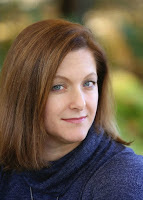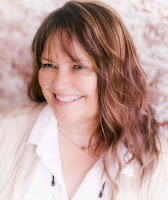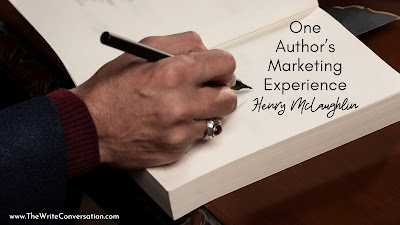Edie Melson's Blog, page 65
January 5, 2024
Five Writing Nemeses that Every Writer Faces

by Tim Suddeth @TimSuddeth
Happy belated New Year. 2024.
I enjoy changing the calendar page, whether to a new month or a new year. There’s something hopeful about flipping over to an empty page, full of potential. What will the coming weeks and months bring? What blessings does God have in store?
Over the last few months, we’ve looked at several ways writers are superheroes. And I hope to continue that. But today, at the start of this new year, I want to warn about some nemeses we will face.
A nemesis as a formidable opponent. An early lesson a writer learns is if you want to write a strong protagonist, you need to have a stronger antagonist. To get the reader to admire your hero or heroine, they need to be stretched to their limits.
I think life pulls this off sometimes a little too well.
5 Nemeses Writers Face
1. Not gifted/smart/talented/educated/good enough
You’re just not enough. This is the first hurdle many writers run into. When we compare ourselves to the experts, the pros, the real writers, well, we just don’t measure up.
Recently, I was with a friend, and she was saying how she didn’t have enough education to be a writer. Our table companion with multiple published works and awards said she didn’t either. She learned what she needed to know and pushed through.
Writing is like something from Ikea. It comes in pieces you get to put together. With power tools you have to learn how to use. With pieces that require painting or sanding. The first effort might end up in the trash. But the potential, as you learn to use the tools and the material, may surprise you.
The answer. Realize there are steps you need to learn and invest the time it takes.
2. Procrastination
I’ll get to that later.
3. The Muse
This one is sneaky. We think of our muse as a friend and an ally. And our muse can often be fun when an idea pop into our heads and you and the muse work out a story.
The problems come when you become dependent on the muse. Because muses are fickle things. Any squirrel or shiny thing will distract them.
We often call this writer’s block, and the writer will beat themselves up because they know they are the only terrible human who has felt this way.
Let me let you in on a secret; all writers go through this. If you wait on the muse, you never know when it will show up. But if you take your seat at your laptop, or pick up your pen, it will soon show up.
Like William Faulkner said, “I only write when inspiration strikes. Fortunately, it strikes at nine every morning.”
The answer. Show up. Your muse will follow.
4. Doubt
Ooo, this is a big one. And it often teams up with the others. It comes in many shapes, and it will return no matter where you are on your writing journey. (What? You thought you could defeat these, and they would go away? You’re so sweet.)
We often call it imposter syndrome. It’s when we look around the table or room and think that we don’t belong. They’re talking about antagonists, some three-act structure something, and genres and we need a translator.
Edie Melson equates learning all that a writer needs to drinking water out of a fire hose. It’s overwhelming. But the secret is it’s overwhelming for everyone. There is so much to know. And it’s different at every stage. And it’s constantly changing. And, yes, you shouldn’t use so many ands.
Answer. When doubt threatens to overwhelm, step back, take a breath. Maybe ask a friend or take a class. Realize being a writer demands a lifetime of learning.
5. Failure
This is one of the ultimate nemeses. It takes no prisoners. What makes it fascinating is that we define it and give it all its power.
We may face it when a friend, a critique partner, or an agent doesn’t think our first draft is Nobel Prize worthy. Or a publisher turns it down. Or we don’t win a prize. We label ourselves a loser, a failure. Labels we would never use on anybody else.
Answer. I found my notes to the 2014 Novelist Retreat at Ridgecrest. It was my first year of attending conferences. Alton Gansky, then the director of the Blue Ridge Mountains Cristian Writers Conference, said, “It’s all right to quit as a writer, just don’t stay quit.”
We need to remember that writing is a journey of growth. Not a climb up the mountain to be the best. But a journey through life to grow, to encourage, to help people relate to others. To learn to tell stories only we can tell. And to recognize that there are still stories to be told, but you're not prepared yet.
There are more nemeses that I need to warn you about. And I still haven’t gotten to procrastination. (I will later.) Even though each of these is a different type of struggle, none of them needs to be lethal. We all have the power and ability to fight through. By breaking through these struggles and bringing others with us, we show what makes writers superheroes.
TWEETABLEFive Writing Nemeses that Every Writer Faces from @TimSuddeth on @EdieMelson (Click to Tweet)
 Tim Suddeth is a stay-at-home dad and butler for his wonderful, adult son with autism. He has written numerous blogs posts, short stories, and three novels waiting for publication. He is a frequent attendee at writers conferences, including the Blue Ridge Mountain Christian Writers Conference and a member of Word Weavers and ACFW. He lives near Greenville, SC where he shares a house with a bossy Shorky and three too-curious Persians. You can find him on Facebook and Twitter, as well as at www.timingreenville.com and www.openingamystery.com.
Tim Suddeth is a stay-at-home dad and butler for his wonderful, adult son with autism. He has written numerous blogs posts, short stories, and three novels waiting for publication. He is a frequent attendee at writers conferences, including the Blue Ridge Mountain Christian Writers Conference and a member of Word Weavers and ACFW. He lives near Greenville, SC where he shares a house with a bossy Shorky and three too-curious Persians. You can find him on Facebook and Twitter, as well as at www.timingreenville.com and www.openingamystery.com.
Published on January 05, 2024 22:00
January 4, 2024
The Ultimate Key to Novel Writing

by A.C. Williams @ACW_Author
The New Year is a time for resolutions, refreshed strategies, and redirected priorities. Many people look at the start of a new year as an opportunity to try something different. Maybe it’s in business practices or marketing strategies or even budget adjustments, but how do you know what to change and what to leave the same?
Is the answer in trends and tropes? Maybe the key to success is to shift the content of our manuscripts to suit what is popular in the industry. That’s not necessarily a bad idea, but if you make chasing trends your key strategy, you’d better be able to write really fast and self-publish. Because if you write the manuscript and give it to a traditional publisher, it’s likely that by the time the book hits the shelves the trend will be over.
So, chasing trends probably isn’t the wise choice.
What about marketing strategies? Should you focus on Facebook ads? What about Amazon ads? Should you invest effort in BookTok or Instagram Reels or YouTube shorts? What about crowd-funding? What about email nurture sequences and lead magnets? (Whew. Are you tired yet?) All of those are important and useful resources. Absolutely. But where do you even start? Jumping into marketing and advertising without a plan is a recipe for an expensive disaster.
So, no, dumping a lot of financial resources into expensive advertising also may not be the best tactic to use.
Wouldn’t it be wonderful if there were a magic formula for writing? Something that would allow you to snap your fingers in order to produce a bestseller that will top all the charts and make you a household name?
Well, sorry to disappoint, but that doesn’t exist. And anyone who tells you it does is likely selling something—a course about how to write a book or a strategy about how to utilize ghostwriters to produce manuscripts. There really isn’t an effective “get rich quick” scheme when it comes to writing books. At least, none of the financially successful authors I know achieved any of it overnight with no effort involved.
Maybe I’m old fashioned (no maybe about it) but I still believe that the time it takes to go through the process of concepting, developing, outlining, drafting, and revising (and revising and revising and revising) a novel is something we shouldn’t mess with. The writing process is a refining process, both for the story and for the author.
All that being said, I do think there is one primary key to writing a book. Through all the years that I’ve been writing and all the amazing mentors who have taught me, I have learned that there is no substitute for a good story.
Yes. That’s the key. Write a good story.
Yeah, it sounds simple, but try writing a good story, and you’ll find it’s the furthest thing from simple.
I can hear the objections already. What is a good story? How do you define good? What standard are you using to identify a story as good or bad?
In my mind, a good story is one that captivates the imagination of your audience, communicates a well-reasoned, inspirational message, and fulfills the expectations of your genre.
How do you identify all those things? How can you learn to find what your audience wants? How can you tap into the collective dreams of a demographic of readers? How can you understand the genre expectations?
One word: Read.
I used to think this was obvious, common sense advice, but the older I get, the more I’m beginning to realize that common sense isn’t as common as it used to be.
You have to read. If you want to write, reading is a requirement. Too many times I’ve spoken to authors who want to write in a specific genre, but they refuse to read in that genre. And that’s a mistake. A foolish choice.
If you want to write a story that captivates the imaginations of your readers, you have to know what their imaginations have already been primed to envision by reading the books that they are reading.
If you want to know what messages, what stories, your readers are already resonating with, you have to read the books that are on their shelves. If you don’t know the stories they already love, how can you expect to write something that will catch and keep their attention?
And if you want to understand the expectations of a genre, you must—you must—read in that genre. If you’re writing science fiction and you’ve never read a science fiction book, you’re going to make all sorts of errors along the way that will give your readers every excuse to stop reading.
So as we move into 2024, a new year bursting with possibility and potential, keep in mind that there’s really only one question in effective storytelling: Does your audience buy it? Does it work? Because if what you’re writing doesn’t work, readers have dozens of streaming options to turn to.
Don’t stress about trends. Don’t panic about marketing tactics. Before you do anything else, write the best story you can. You accomplish that by reading books that help you understand your audience.
Trends will change. Culture will shift. Social media will reinvent itself again and again. Good stories endure no matter how the world spins around them.
TWEETABLEThe Ultimate Key to Novel Writing from author @ACW_Author on @EdieMelson (Click to Tweet)
 Award-winning author, A.C. Williams is a coffee-drinking, sushi-eating, story-telling nerd who loves cats, country living, and all things Japanese. She’d rather be barefoot, and if she isn’t, her socks won’t match. She has authored eight novels, two novellas, three devotional books, and more flash fiction than you can shake a stick at. A senior partner at the award-winning Uncommon Universes Press, she is passionate about stories and the authors who write them. Learn more about her book coaching and follow her adventures online at https://www.amycwilliams.com.
Award-winning author, A.C. Williams is a coffee-drinking, sushi-eating, story-telling nerd who loves cats, country living, and all things Japanese. She’d rather be barefoot, and if she isn’t, her socks won’t match. She has authored eight novels, two novellas, three devotional books, and more flash fiction than you can shake a stick at. A senior partner at the award-winning Uncommon Universes Press, she is passionate about stories and the authors who write them. Learn more about her book coaching and follow her adventures online at https://www.amycwilliams.com.
Published on January 04, 2024 22:00
January 3, 2024
Meet Your Writing Goals This Year with These Valuable Tips

by Lynn H. Blackburn @LynnHBlackburn
Have you set writing goals for the year?
Are you excited about your big plans?
Or did you think about it and decide there was no way you were setting goals because you haven’t stuck with a New Year’s Resolution since 1993?
Regardless of your answer, I’m trying something this year that you might want to consider. It’s called “24 for ’24” and I’m excited about giving it a go!
Before we begin, I need to give you three key pieces of information/definitions.
1. The “24 for ’24” idea is not original to me. It’s from Gretchen Rubin and it applies to far more than writing. You can read all about it here.
2. MTB stands for Manuscript Time Block. This is also not an original idea. I learned this concept from Becca Syme of Write Better-Faster. We’ll talk about the MTB concept in more detail in February. For now what you need to know is that an MTB is 30 minutes of manuscript time.
3. Low Bar/High Bar. I’m not sure who gets original credit for this concept. I learned about it from a Bullet Journal designer that I follow on YouTube, JashiiCorrin. We’ll talk about this idea more in March, but the basic idea is to set a low bar and a high bar when you’re setting your goals.
Now—let’s talk about #24for24.
When I first saw the challenge to “write 24 minutes a day every day in 2024” my first thought was, “No.”
I’m serious. I’m not a “write every day” writer. I might write every day for months, but after my deadline has been met, I’m more of a “write when I need to or feel like it”writer.
But then I read more about the idea behind “24 for ’24” and realized that this concept not only could work for me but could work for just about anyone.
Why? Because it is completely customizable and flexible based on your own situation and dreams.
#24for24 can mean anything…from 2-4 minutes a day in 2024 to 2-4 times in 2024 to 2-4 hours a month in 2024, etc.
This 2-4 approach fits in with the low bar/high bar concept you can use when setting your goals. You give yourself a low bar (2) and a high bar (4) and either way, you’ve succeeded!
So let’s talk about how we could use #24for24 specifically for writing:
1. 24 minutes every day in 2024. If this appeals to you, go for it.
2. 2-4 minutes every day in 2024. What I like about this is that if your goal is to become a “write every day” writer, then 2-4 minutes is a manageable place to start. And because very often, you can use this method to trick your brain into a longer session. You give yourself permission to stop after two minutes. And if you aren’t feeling it, you stop and go on with your day. But you might find that 2 minutes turns into 20.
3. 2-4 hours every Saturday in 2024. Let’s say you’re a weekend warrior. This might work for you if your main writing day is Saturday.
You get the idea. The options are as endless and as unique as you are!
Now, how am I going to apply this to my writing life?
My #24for24 goal is 24 MTBs a month in 2024. As mentioned above, an MTB is a thirty-minute block of time spent working on my manuscript. By setting the goal for 24 MTBs a month, I give myself days off. I can skip writing on every Sunday and a few Saturdays and still meet this goal. To be clear, there will be many, many months where I blow this goal out of the water. When I’m on a deadline, this kind of goal is almost laughably easy. But my problem isn’t sitting down to write when I’m on a deadline. My problem is working consistently when I’m NOT on a deadline. So that’s why this is a good fit for me.
Of course, I didn’t stop with using this for my actual writing. I expanded it to my greater writing life. I’m using this to plan my goals for reading, personal growth, strengthening my craft, and much more.
So I’m going to leave you with a few writing adjacent ways you could use the #24for24 concept in your goal setting. All of these are dependent on YOU and YOUR personal goals. None of this is prescriptive. I’m just trying to give you ideas to get your own internal motivation firing! And even though you aren’t going to be reading this until January 4, 2024, it isn’t too late to start!
1. Craft/Growth
1. Attend 2-4 conferences/classes in 2024. These could be big national events or local offerings, in person or virtual.2. Read 2-4 books on the craft in 2024. Or be more aggressive and read 2-4 a quarter in 2024. 3. Read 24 new-to-you authors, 24 books in your genre, 24 books outside of your usual genre, 24 books that won major awards last year, etc. If you’re focused on a particular publishing house, read 24 books they published in the last 24 months. 4. Make 24 appointments with yourself in 2024 to focus on your writing. Put them on your calendar. Don’t let anything interfere.
2. Pitching/Connecting
1. Query 2-4 agents in 2024. 2. Post 2-4 times a week on social media, send 2-4 newsletters a month/quarter/year, write 2-4 blog posts a month, etc. 3. Follow 2-4 new-to-you authors/influencers on social media who are doing things in a way that you want to emulate or who write in the genre you write in. 4. Leave 2-4 comments (a week/a month) on your favorite author/agent/publishing house posts, blogs, etc.
I’d love to hear how you might use #24for24 in your own writing life!
Grace and peace as you launch into 2024!Lynn
TWEETABLEMeet Your Writing Goals This Year with These Valuable Tips from @LynnHBlackburn on @EdieMelson (Click to Tweet)
 Lynn H. Blackburn is the award-winning author of Unknown Threat, Malicious Intent, and Under Fire, as well as the Dive Team Investigations series. She loves writing swoon-worthy southern suspense because her childhood fantasy was to become a spy, but her grown-up reality is that she's a huge chicken and would have been caught on her first mission. She prefers to live vicariously through her characters by putting them into terrifying situations while she's sitting at home in her pajamas! She lives in Simpsonville, South Carolina, with her true love, Brian, and their three children. Learn more at www.lynnhblackburn.com.
Lynn H. Blackburn is the award-winning author of Unknown Threat, Malicious Intent, and Under Fire, as well as the Dive Team Investigations series. She loves writing swoon-worthy southern suspense because her childhood fantasy was to become a spy, but her grown-up reality is that she's a huge chicken and would have been caught on her first mission. She prefers to live vicariously through her characters by putting them into terrifying situations while she's sitting at home in her pajamas! She lives in Simpsonville, South Carolina, with her true love, Brian, and their three children. Learn more at www.lynnhblackburn.com.
Published on January 03, 2024 22:00
January 2, 2024
What Does Your Writing End Game Look Like?

by Sarah Sally Hamer @SarahSallyHamer
We’ve been hearing those words a lot lately, with a book of that title making news. But it made me ask myself about my own “end game.” What exactly do I want in my writing? And, ultimately, my life?
The Oxford Dictionary defines the term as “the final stage of a game such as chess or bridge, when few pieces or cards remain.” Writing isn’t necessarily a game and, of course, we have endless choices for what we want to accomplish, but what is it that we really are striving for?
In so many words, what does writing SUCCESS look like to you?
There are many layers and options in our writing profession:Just writing. Only a tiny proportion of people actually write. I found half a dozen statistics online but the consensus seems to be that maybe 80% of humans WANT to write but only about 3% actually do. So, if you sit down and put words on paper or a screen, you’re ahead of 97% of the rest of the world.Finishing a book. Of that 3%, maybe 10% finish it. Finishing a book is only the beginning of the race, of course, but writing “The End” only happens for that small percentage.Editing the darned thing. My guess is that only 10% of the people who finish a book get it edited. (Hence the huge number of poorly written books available for less than $.99 on Amazon.) Without editing, at least in my humble opinion, a book often doesn’t reach its full potential. (Caveat—I am a book editor, so I am very picky. Not all unedited books are poorly written, no matter what they cost, and not every book needs editing.)Publishing the book. It used to be that publishing meant a commercial publisher with money to the author up front. That isn’t the case any more—ANYONE can publish a book at almost no cost. Which has changed the game immensely, and may not be for the best. In today’s world, commercial publishing is not always the first, or the best, choice for many writers. Regardless of how someone publishes, holding a copy of your print book in your hand is an amazing thing and something not very many people ever do.Making money at writing. Ah. That’s the $64,000 question, isn’t it? How many writers actually can completely support themselves through writing? In 2018, the latest numbers I could find, only 21% percent of full-time published authors were making a living at writing. That doesn’t include the millions who write in spare hours.
Does that make you cringe? It does me. After all, there were 32.8 million books listed for sale earlier this year on Amazon, which sells about 80% of all books in print. How can we compete?
So, my real question is: Do we need to compete?
What if, instead of jumping into that horse race, we ask ourselves why we’re writing?
Many of the people reading this post WANT to write. Why would you read it if not? Some of us have actually written something and a bunch have finished a book. Several of you may be making decent money, even if you’re not completely supporting yourself. But probably every single one of us is writing because we love it. Or, so I hope.
I’m passionate about writing. Which doesn’t mean that I write all the time or that it supports me or that I don’t walk away from it periodically. But I can’t NOT write. I am compelled to read or write every day to keep my sanity. It’s a large part of my happiness. So, even though I can aspire to any one of the levels I’ve mentioned above—and have reached all of them except the making-a-living-by-writing one—I do it because I love it.
What about you? Do you love writing? Are you compelled also? Do you know what your end game is?
For more ideas about why we write and self-care for writers, join Sally and six amazing experts to discuss all this on March 23-24, 2024. Check it out at www.mindpotential.org
TWEETABLEWhat Does Your Writing End Game Look Like? Thoughts from @SarahSallyHamer on @EdieMelson (Click to Tweet)
 Sarah (Sally) Hamer, B.S., MLA, is a lover of books, a teacher of writers, and a believer in a good story. Most of all, she is eternally fascinated by people and how they 'tick'. She’s passionate about helping people tell their own stories and has won awards at both local and national levels, including two Golden Heart finals.
Sarah (Sally) Hamer, B.S., MLA, is a lover of books, a teacher of writers, and a believer in a good story. Most of all, she is eternally fascinated by people and how they 'tick'. She’s passionate about helping people tell their own stories and has won awards at both local and national levels, including two Golden Heart finals.A teacher of memoir, beginning and advanced creative fiction writing, and screenwriting at Louisiana State University in Shreveport for over twenty years, she also teaches online for Margie Lawson at www.margielawson.com. Sally is a freelance editor and book coach, with many of her students and clients becoming successful, award-winning authors. You can find her at sally@mindpotential.org
Published on January 02, 2024 22:00
January 1, 2024
Productivity Practices for Writers in 2024

by PeggySue Wells @PeggySueWells
For authors, the beginning of a new year is a natural time to reflect on what worked previously and what fresh practices will improve productivity moving forward.
While some personalities are more structured and list-making than others, everyone can establish beneficial habits that serve as guardrails guiding progress on efficient pathways. Effective habits that can be implemented simply include:
Self-care Maintaining good health is the quickest way to increase productivity. Sleep: 7-8 hours nightlySolitude: Daily carve moments, monthly a half-day, quarterly a day away. Experience quiet and listen to your heart and the Holy Spirit. When we practice solitude proactively, there is less chance we will need a forced or reactive retreat when stress has built to a level that impacts our health.Stillness: What morning routines get your creativity flowing? What evening routines help you close out the day with gratitude and set up the next day for success? Sabbath: “Six days do your work, but on the seventh day do not work, so that your ox and your donkey may rest, and so that the slave born in your household and the foreigner living among you may be refreshed,” Exodus 23:12 NIV. One day weekly, celebrate the Sabbath by doing what refreshes your soul.Move. Daily bend each joint and stretch muscles. Get your heartbeat elevated. Take ten deep breaths. Get outdoors. Studies show being outdoors for ten to 20 minutes daily has powerful benefits on our physical, emotional, and mental health. Multiply these benefits by being outdoors near water. Treat yourself to adequate clothing. Encourage getting outdoors by maintaining a bird feeder, planting herbs in an outdoor pot, cultivating a patch of flowers, or walking to the mailbox to exchange letters with a pen pal.
DestinationWhat goals do you want to accomplish this year? This quarter? This month? This week? Jim Collins of Good to Greatreminds that having more than three goals is to have none.
Break down your one to three goals into simple steps to achieve daily, weekly, monthly, and quarterly.
At the close of your workday, record three things you feel grateful about, and list tomorrow’s three steps to move toward accomplishing goals. The next day, do the most important three items first.
Weekly, schedule 15 minutes to review the past week and set priorities for the upcoming week. On a scale of 1 to 5, rate where you are:Emotionally Financially Physically Relationally Spiritually Vocationally
TrackingMonthly, review the past 30 days. Consider what worked and what didn’t. What goals were accomplished ahead of schedule? Based on results and personal values, is rerouting in order?
What we will not do is as important as what we will. Efficiency studies indicate that 20 percent of what we do produces 80 percent of preferred results. Of the 80 percent that merely keeps you sidetracked from the tasks that bring top results, what can you eliminate from your schedule?
What words and attitudes hold you back? Streamline your life by eliminating complaining, condemning, criticizing, and excuses. After spending too much energy complaining about marketing and managing my website, I’ve changed my words to reflect my ability and eagerness to learn these two highly beneficial skills.
As you shift into habits that nurture productivity, download the free yearly review sheet. This helpful tool can be used anytime to help clarify where you’ve been and where you want to go.
What habits help you be your most creative and productive?
TWEETABLEProductivity Practices for Writers in 2024 from @PeggySueWells on @EdieMelson (Click to Tweet)
 Tropical island votary and history buff, PeggySue Wells parasails, skydives, snorkels, scuba dives, and has taken (but not passed) pilot training. Writing from the 100-Acre Wood in Indiana, Wells is the bestselling author of thirty books including The Slave Across the Street, Slavery in the Land of the Free, Bonding With Your Child Through Boundaries, Homeless for the Holidays, Chasing Sunrise, and The Ten Best Decisions A Single Mom Can Make. Founder of SingleMomCircle.com, PeggySue is named for the Buddy Holly song with the great drumbeat. At school author visits, she teaches students the secrets to writing and speaks at events and conferences. Connect with her at www.PeggySueWells.com, on Facebook at PeggySue Wells, and LinkedIn at linkedin.com/in/peggysuewells
Tropical island votary and history buff, PeggySue Wells parasails, skydives, snorkels, scuba dives, and has taken (but not passed) pilot training. Writing from the 100-Acre Wood in Indiana, Wells is the bestselling author of thirty books including The Slave Across the Street, Slavery in the Land of the Free, Bonding With Your Child Through Boundaries, Homeless for the Holidays, Chasing Sunrise, and The Ten Best Decisions A Single Mom Can Make. Founder of SingleMomCircle.com, PeggySue is named for the Buddy Holly song with the great drumbeat. At school author visits, she teaches students the secrets to writing and speaks at events and conferences. Connect with her at www.PeggySueWells.com, on Facebook at PeggySue Wells, and LinkedIn at linkedin.com/in/peggysuewells
Published on January 01, 2024 22:00
December 31, 2023
Make Sure Your Writing Companions are a Good Influence: Beware These 9 Traits of Toxic Writers

by Edie Melson @EdieMelson
There are very few of us who can write in a vacuum. The actual act of writing is done in seclusion, but we gravitate to others who share our struggles. Sharing the journey can make success easier . . . if we choose the right companions. So my question to you is this, have you chosen your tribe with care?
Or are you surrounding yourself with toxic writers?
None of us want to consider that there are those we should avoid, but there are. This doesn’t mean that we can’t encourage them from afar, or interact with them in certain situations. I’m not suggesting we become elitists, only banding together with those who have something to offer.
But I am suggesting we choose our traveling companions with care. Today I’m going to share some traits that might be a warning to keep your distance.
9 Warning Signs for Toxic Writers
1. Writers who only talk about writing, but never produce anything of their own.These wanna-be scribes are interested in an exclusive club, not in the painful work it takes to succeed. Beware or their excitement with what might happen may replace your own willingness to put in the work necessary to get there.
2. Writers who always have an excuse for not producing anything. These are the first cousins of the group mentioned above. They always have a reason for not having anything to show for their time. Truthfully, we all have legitimate reasons not to write. It all boils down to what we’re willing to give up to follow our dreams.
3. Writers who always gossip about other writers. This type can range from subtle to blatant. Don’t get sucked in by their negativity. If they’re sharing gossip about others, you can bet they’re sharing gossip about you with others.
4. Writers who cannot accept honest critiques. These writers can range from those who get angry to those who want to argue every point. I’m here to tell you that there is very little in this world more painful than hearing something you wrote doesn’t measure up. But it’s that kind of feedback that will push us above average and onto publishing success.
5. Writers who put others down to build themselves up. Pointing out the mistakes other writers make is a seductive thing. If we’re not careful, we can set ourselves up as an expert at the expense of others. Sure we need to offer critiques, but we offer suggestions, never put down the effort.
6. Writers who legalistically follow the rules.These are the type who will argue commas and semi-colons for days. They can bring a productive critique session to a screeching halt with insisting everything in publishing is black and white and everyone must work the same way. The truth is that very few things in this industry are black and white.
7. Writers who insist that there is only one correct way to write. You’ll run into writers who outline and writers who work more intuitively (commonly referred to as seat-of-the-pants writers). The way you write has more to do with how you’re wired than convention. Don’t let anyone insist theirs is the only right way to do something.
8. Writers more interested in a life support group or relationship than in encouraging each other to write. There’s nothing wrong with sharing aspects of life with those we’re close to. I’m talking about that person who dominates every meeting with personal-life challenges.
9. Writers who put themselves above others after success. Yes, there are things to celebrate—contest wins, publishing contracts, etc. But success doesn’t mean we’re better than someone else. We all have contributions to make and need to remember that.
These are the things I’ve seen in others that can keep me from moving forward. Even scarier—these are things I’ve seen in MYSELF that can keep my companions from moving forward.
If you’re on the path with someone who’s turned toxic, you have reached a decision point. How long are you going to hang in before the relationship begins to hamper your forward motion? There’s no right answer to that question, only you can answer it for yourself. But we need to be aware of what’s going on around us its affect.
I’d love to know how you handle toxic traveling companions, and what traits you’d add to this list.
Don’t forget to join the conversation!Blessings,Edie
TWEETABLEMake Sure Your Writing Companions are a Good Influence: Beware These 9 Traits of Toxic Writers - @EdieMelson (Click to Tweet)
 Edie Melson is a woman of faith with ink-stained fingers observing life through the lens of her camera. No matter whether she’s talking to writers, entrepreneurs, or readers, her first advice is always “Find your voice, live your story.” As an author, blogger, and speaker she’s encouraged and challenged audiences across the country and around the world. Her numerous books reflect her passion to help others develop the strength of their God-given gifts and apply them to their lives. Connect with her on her website, through Facebook, Twitter and Instagram.
Edie Melson is a woman of faith with ink-stained fingers observing life through the lens of her camera. No matter whether she’s talking to writers, entrepreneurs, or readers, her first advice is always “Find your voice, live your story.” As an author, blogger, and speaker she’s encouraged and challenged audiences across the country and around the world. Her numerous books reflect her passion to help others develop the strength of their God-given gifts and apply them to their lives. Connect with her on her website, through Facebook, Twitter and Instagram.
Published on December 31, 2023 22:00
December 30, 2023
The Things I Love Most About Being a Writer

by Edie Melson @EdieMelson
As I get ready to start a new year, I always try to look back and find ways to avoid the things I struggled with last year. One of the things I noticed in 2023 was that I let myself get so exhausted, I forgot to rejoice in the things that make me love writing. So before I have a chance to get sidetracked, I'm making a list of the what I love best about being a writer!
15 Things that Make Me Love Writing
1. I get to use my own experiences—good and bad—to impact others. I’ve learned that we all share a lot of the same fears, hopes and struggles. Writing gives me a chance to share what I’ve been through and watch it impact others.
2. I hear voices in my head and it’s completely normal. Not only is it normal, but it’s downright scary when our imaginary friends stop talking to us
3. I can buy books and write it off. Books are some of my favorite things in the whole world. Now I need to buy them to further my career.
4. I can take revenge on those who irritate me. Of course I don’t make them recognizable, but it makes me feel better when I can expose their actions in my books and articles. After all, there’s a reason for that old saying, the pen is mightier than the sword.
5. I get to work in our pajamas. Or at least in comfy clothes. There’s something to be said for working at home where I don’t have to worry about how I look.
6. I get to be the boss. I’m a total control freak, so being in charge fits my personality perfectly. I’m in charge of me, my schedule (to a certain degree) and I get to tell my characters what to do.
7. I get to be friends with other writers – and some of them are famous. Some of my first heroes were authors. Now, I’m friends with other writers and get to hang out with the people I’ve always admired.
8. I get to research anything I want. I like to think of it as a healthy curiosity. I refuse to accept my husband’s description of me as nosey.
9. I get to hang out in coffee shops and libraries. I love the atmosphere of coffee shops and libraries. As a writer, I have a legitimate reason for hanging out there.
10. I get to buy pens and paper. Again, these are some of my favorite things. But since I earn my living as a writer, I have to have them for my business.
11. I get paid to make things up. No, not when I'm writing articles and things like that. But for those of us who write fiction, we get to create everything from our imagination.
12. I get fan mail. It’s not the fan mail exactly that’s the best. For me it’s hearing from someone I don’t know that has been touched by the words I wrote. I love getting to see glimpses of God working through me.
13. I get to be weird. Writers look at the world a little differently. I can embrace that because people expect it. No need to hide behind a mask of normalcy.
14. I get to daydream. All those hours of daydreaming are legitimate work time. Even if I'm working on nonfiction I still have to come up with new and different ways to present the information. That means time spent thinking and dreaming is a workday requirement.
15. I am courageous enough to follow my dreams. We talk a lot about the fears that come with being a writer. It’s important to never forget the courage it takes to following our dreams. That's something we should celebrate!
These are my 15 favorite things about being a writer. What’s your favorite thing? Be sure to leave your thoughts in the comments section below.
Don’t forget to join the conversation!Blessings,Edie
TWEETABLEThe Things I Love Most About Being a Writer from author @EdieMelson (Click to Tweet)
 Edie Melson is a woman of faith with ink-stained fingers observing life through the lens of her camera. No matter whether she’s talking to writers, entrepreneurs, or readers, her first advice is always “Find your voice, live your story.” As an author, blogger, and speaker she’s encouraged and challenged audiences across the country and around the world. Her numerous books reflect her passion to help others develop the strength of their God-given gifts and apply them to their lives. Connect with her on her website, through Facebook, Twitter and Instagram.
Edie Melson is a woman of faith with ink-stained fingers observing life through the lens of her camera. No matter whether she’s talking to writers, entrepreneurs, or readers, her first advice is always “Find your voice, live your story.” As an author, blogger, and speaker she’s encouraged and challenged audiences across the country and around the world. Her numerous books reflect her passion to help others develop the strength of their God-given gifts and apply them to their lives. Connect with her on her website, through Facebook, Twitter and Instagram.
Published on December 30, 2023 22:00
December 29, 2023
Make 2024 The Best Writing Year Ever by Practicing These 23 Things

by Edie Melson @EdieMelson
The New Year is just around the corner. And while it holds much promise and excitement, there will also be difficult times. We can begin now to be ready for the challenges by developing some healthy habits for our writing souls.
And the very first things I want to do is remind you—and me—of ways to be a little bit kinder on ourselves.
23 Things to Do For Your Writing Self1. Instead of putting yourself down, build yourself up.
2. Choose to be optimistic.
3. Pray First
4. Be patient, writing is a process and takes time.
5. Invest in your dream—financially and otherwise.
6. Find a tribe—don’t try to do this alone.
7. Remember why you write.
8. Be courageous.
9. Choose joy.
10. Remember that failure isn’t always a bad thing.
11. Be flexible.
12. Give others the benefit of the doubt.
13. Eat healthy.
14. Take a chance and hit send.
15. Make time to write a priority.
16. Take a walk—exercise regularly.
17. Don’t beat yourself up when you fall short.
18. Invest in other writers—we all have those who aren’t quite where we are.
19. Give yourself the gift of a reasonable writing schedule.
20. Have a dedicated workspace.
21. When you hit a roadblock, go around it, don’t stop.
22. Encourage other writers.
23. Sometimes, write just for the fun of it.
I’d love for you to add to today’s list. Be sure to leave your thoughts in the comments section below.
Don’t forget to join the conversation!Blessings,Edie
And in case you'd like to print out this list: PDF Link for 23 Things to Do for Your Writing Self
TWEETABLEMake 2024 The Best Writing Year Ever by Practicing These 23 Things from author @EdieMelson (Click to Tweet)
 Edie Melson is a woman of faith with ink-stained fingers observing life through the lens of her camera. No matter whether she’s talking to writers, entrepreneurs, or readers, her first advice is always “Find your voice, live your story.” As an author, blogger, and speaker she’s encouraged and challenged audiences across the country and around the world. Her numerous books reflect her passion to help others develop the strength of their God-given gifts and apply them to their lives. Connect with her on her website, through Facebook, Twitter and Instagram.
Edie Melson is a woman of faith with ink-stained fingers observing life through the lens of her camera. No matter whether she’s talking to writers, entrepreneurs, or readers, her first advice is always “Find your voice, live your story.” As an author, blogger, and speaker she’s encouraged and challenged audiences across the country and around the world. Her numerous books reflect her passion to help others develop the strength of their God-given gifts and apply them to their lives. Connect with her on her website, through Facebook, Twitter and Instagram.
Published on December 29, 2023 22:00
December 28, 2023
Ten Reasons Why Weekly Writing Goals Are Better Than Project Deadlines

by Zena Dell Lowe @ZenaDellLowe
As we approach the close of yet another year, reflections on our accomplishments and creative endeavors may stir a sense of disappointment. Amidst the whirlwind of festivities and holiday cheer, questions linger: How much have we truly accomplished? Did we meet our writing goals? Or did another year slip away with unfinished projects, making us feel defeated and haunted?
If you find yourself grappling with these types of inquiries, the solution may lie in a shift of approach. As we enter into another year of possibilities, the key is to abandon the idea of traditional project deadlines and instead embrace the power of setting weekly writing goals.
10 reasons why weekly writing goals are better than project deadlines:
1. Increased motivation: The other day I wrote for nine hours solid. Nine hours of grueling mental work and I only had three pages to show for it. This outcome feels so pathetic, so small and minuscule, that it’s tempting to just give up. But smaller weekly goals allow me to reframe the way I see my progress and ultimately view my work. If I only got three pages written out of the entirety of a novel, that seems small. However, if I got three pages written out of weekly goal of ten, then I only have seven pages left. Do you see how huge that shift of perspective is? Breaking the goal into smaller chunks helps you keep up momentum, feel better about yourself, and about the progress you're making. Even small, incremental progress feels like movement, which then gives us the sense of satisfaction we need to keep plodding forward.
2. Creates Urgency: Since writing a novel or a screenplay can seem so large and take so long in comparison to other smaller projects (i.e. doing laundry, weeding the garden, washing dishes, etc.) writers tend to put it off completely. One of the things that I’ve realized for myself is that self-imposed project deadlines don’t create the urgency that I need for me to get things done in the long run. Even deadlines associated with some huge, future event (like a writer’s conference) might not be enough to sustain me on a daily basis because I’m constantly distracted by the tyranny of the urgent. A big, nebulous project just doesn't look as important when I see it alongside the urgent needs of the day. It keeps getting put off in favor of more immediate needs. But when I set weekly goals, those goals then become part of the tyranny of the urgent. I’m tricking myself to feel greater pressure to complete a certain number of pages each week, which therefore creates greater urgency and reduces my tendency to avoid altogether.
3. Reduced Procrastination: Breaking down tasks into weekly goals makes the workload more manageable, reducing the likelihood of procrastination. Writers may find it easier to start and maintain momentum when the goal is to accomplish a smaller task each week.
4. Consistent Progress: Weekly writing goals encourage writers to make steady, achievable progress each week, which feels less daunting and overwhelming. It can be more effective than sporadic bursts of activity associated with project deadlines. Suddenly, I don't need to get to chapter 47. I just need to write 10 pages this week. Again, this helps me keep up momentum. Even though it may feel like I’m going at a much slower pace, I'm making consistent progress. I'm making small, incremental progress. If I don't have that, I get overwhelmed. It's too big for me and I get discouraged because I can't see the end. When I make my goal something that I CAN see, I don't sacrifice my writing time for things that feel more pressing.
5. Satisfies the Need for Immediate Gratification: When I weed my garden, I see the results of my labor immediately. The improvement is visible and tangible. It gives me a warm and fuzzy feeling. The problem with storytelling is that it takes so long to write a story well, and the results are so nebulous and intangible, that we keep allowing ourselves to be distracted by things that are going to give us an immediate emotional payoff. When we don't have the smaller chunks, it's easier to keep sacrificing our writing time for things that feel more pressing. The tyranny of the urgent robs us of long-term progress because it allows us to see immediate results. There's instant emotional gratification when we accomplish something tangible. Breaking down larger goals into smaller, weekly chunks addresses the human tendency to prioritize immediate satisfaction. This strategy ensures that progress is visible, tangible, and satisfying.
6. Less Stress: The pressure associated with looming project deadlines can be stressful and counterproductive. Weekly goals distribute the workload, alleviating stress and creating a more conducive environment for creativity.
7. Increased Accountability: Weekly goals provide regular checkpoints, enhancing accountability. Writers are more likely to stay on track when they have smaller milestones to achieve regularly, rather than relying on a single distant deadline.
8. Higher Quality Output: Smaller, focused goals can lead to higher-quality writing that doesn’t feel so overwhelming to produce. Writers can dedicate more time to refining their work, revising, and polishing, which can result in a better final product compared to rushing to meet a larger, more distant deadline.
9. Better Time Management: Weekly goals encourage writers to manage their time more effectively. By breaking down larger tasks into smaller, manageable portions, writers can allocate their time more efficiently, leading to increased productivity.
10. Adaptability to Life Changes: Life is unpredictable, and unforeseen circumstances can disrupt writing schedules. Weekly goals provide more opportunities to adapt to unexpected events, ensuring that progress can continue even in the face of disruptions.
In the journey of a writer, success lies not only in the completion of a project but in the continuous, sustainable progress fueled by the power of weekly goals. May this strategy transform your writing practices in 2024, and help you maintain momentum, overcome procrastination, and provide the satisfaction you need to help keep you going.
TWEETABLETen Reasons Why Weekly Writing Goals Are Better Than Project Deadlines, @ZenaDellLowe on @EdieMelson (Click to Tweet)
 Zena has worked professionally in the entertainment industry for over 20 years as a writer, producer, director, actress, and story consultant. Zena also teaches advanced classes on writing all over the country. As a writer, Zena has won numerous awards for her work. She also has several feature film projects in development through her independent production company, Mission Ranch Films. In addition to her work as a filmmaker, Zena launched The Storyteller’s Mission with Zena Dell Lowe, a podcast designed to serve the whole artist, not just focus on craft. In 2021, Zena launched The Storyteller’s Mission Online Platform, where she offers advanced classes and other key services to writers. Zena loves story and loves to support storytellers. Her passion is to equip artists of all levels to achieve excellence at their craft, so that they will truly have everything they need to change the world for the better through story.
Zena has worked professionally in the entertainment industry for over 20 years as a writer, producer, director, actress, and story consultant. Zena also teaches advanced classes on writing all over the country. As a writer, Zena has won numerous awards for her work. She also has several feature film projects in development through her independent production company, Mission Ranch Films. In addition to her work as a filmmaker, Zena launched The Storyteller’s Mission with Zena Dell Lowe, a podcast designed to serve the whole artist, not just focus on craft. In 2021, Zena launched The Storyteller’s Mission Online Platform, where she offers advanced classes and other key services to writers. Zena loves story and loves to support storytellers. Her passion is to equip artists of all levels to achieve excellence at their craft, so that they will truly have everything they need to change the world for the better through story.To find out more about Zena or her current courses and projects, check out her websites at WWW.MISSIONRANCHFILMS.COM and WWW.THESTORYTELLERSMISSION.COM
Published on December 28, 2023 22:00
December 27, 2023
One Author’s Marketing Experience
Edie here. Today I invite you to celebrate with one of our own, Henry McLaughlin, in the publication of his most recent book. Henry is a master storyteller and blessed with the ability to teach what he's learned! His newest book is
Emily's Trials
, and I know you're going to want to take a look!

by Henry McLaughlin @RiverbendSagas
Marketing for an author can be described as the sound of fingernails on a blackboard amplified a hundred times. There are a few authors who are excellent marketers. I met him at a conference once. He lost me at his third sentence when he started talking about Amazon algorithms and the intricacies of figuring out pricing.
Unfortunately, marketing is the new reality of writing and publishing. Why write if you don’t want to get published? If you publish, whether traditional or self, you need to market your product and, to a certain extent yourself. Even traditional publishers expect the author to do the great bulk of the marketing—like 95%.
So, what’s a person to do? Weep and moan about how unfair all this is? As Dr. Phil would say, “How’s that working for you?”
The best strategy is to accept the reality of today’s publishing world and deal with it.
Learn about marketing. Attend conferences and take the workshops offered on marketing. As you build your writing community network, talk about their marketing experiences. Look for tips and resources, for what worked and didn’t work, what they learned they would carry forward into their next marketing effort. Study books, blogs, and articles for information and tips. Experiment with ideas and possibilities. Discover what you’d be comfortable doing.
I recently released a new book— Emily’s Trials —with Elk Lake Publishers.
Knowing I view marketing the same way I view colonoscopies, I asked a writing friend I trusted for advice. He recommended hiring a person to run a book launch for me on Facebook. And he gave me a name.
Her name is Karen Sargent. We shared emails and talked on the phone. I liked her ideas and style.
ONE KEY ELEMENT in every marketing campaign (just as there is in every aspect of our lives): NEVER FORGET TO INVOLVE GOD IN YOUR THINKING, PLANNING, AND DECISION M AKING. AND IN IMPLEMENTING YOUR PLAN.
After praying over all the information before me, I decided to go forward. The key element was the peace I had over the whole project.
Karen recruited the launch team. She planned the activities, encouraged the members, organized prizes.
Recruiting the team took a couple of weeks and the launch itself was a three-week effort to publicize the book on Facebook and other social media. Karen came up with suggestions, graphics to share, and contests for the team members.
In my view the effort was a great success. The team was enthusiastic and diligent. Emily’s Trials reached number 11 on the Amazon top 100 list for its genre.
What did I learn from the experience? To select a team leader who is accessible, who shares my vision for the book, and who is skilled at generating action from the team. I also learned the value of connecting with God throughout the process.
Would I do it again? Yes. I experienced no pressure or angst about having to do all that work by myself. I also experienced the joy of working with the team and sharing in making the launch a success. The effort exceeded my expectations.
How about you? Please share your experiences in marketing, especially what you found worth repeating in your next publishing effort.
TWEETABLEOne Author's Marketing Experience from author Henry McLaughlin (@RiverBendSagas) on @EdieMelson (Click to Tweet)
 Emily's Trialsby Henry McLaughlin
Emily's Trialsby Henry McLaughlin
Emily Peyton is one of the first female attorneys in 1880s Kansas. After her father is injured in an accident, Emily takes on managing the practice in the face of prejudice and hostility. Many feel the law is no place for a woman.
Emily’s first case is defending a man accused of murder and robbery. During the trial, she must deal with the blatant bias of the trial judge, who frustrates her ability to present her case.
When her client is convicted, Emily blames herself and takes on the task of finding the real killer before her client is hanged. She risks her life in the face of threats to herself and her father if she continues to pursue justice.
With the help of old and new friends, Emily tracks down the killer but faces her own death and that of the man she is falling in love with.Henry’s debut novel, Journey to Riverbend, won the 2009 Operation First Novel contest.
 Henry edits novels, leads critique groups, and teaches at conferences and workshops. He enjoys mentoring and coaching individual writers.
Henry edits novels, leads critique groups, and teaches at conferences and workshops. He enjoys mentoring and coaching individual writers.
Connect with Henry on his BLOG, TWITTER and FACEBOOK.

by Henry McLaughlin @RiverbendSagas
Marketing for an author can be described as the sound of fingernails on a blackboard amplified a hundred times. There are a few authors who are excellent marketers. I met him at a conference once. He lost me at his third sentence when he started talking about Amazon algorithms and the intricacies of figuring out pricing.
Unfortunately, marketing is the new reality of writing and publishing. Why write if you don’t want to get published? If you publish, whether traditional or self, you need to market your product and, to a certain extent yourself. Even traditional publishers expect the author to do the great bulk of the marketing—like 95%.
So, what’s a person to do? Weep and moan about how unfair all this is? As Dr. Phil would say, “How’s that working for you?”
The best strategy is to accept the reality of today’s publishing world and deal with it.
Learn about marketing. Attend conferences and take the workshops offered on marketing. As you build your writing community network, talk about their marketing experiences. Look for tips and resources, for what worked and didn’t work, what they learned they would carry forward into their next marketing effort. Study books, blogs, and articles for information and tips. Experiment with ideas and possibilities. Discover what you’d be comfortable doing.
I recently released a new book— Emily’s Trials —with Elk Lake Publishers.
Knowing I view marketing the same way I view colonoscopies, I asked a writing friend I trusted for advice. He recommended hiring a person to run a book launch for me on Facebook. And he gave me a name.
Her name is Karen Sargent. We shared emails and talked on the phone. I liked her ideas and style.
ONE KEY ELEMENT in every marketing campaign (just as there is in every aspect of our lives): NEVER FORGET TO INVOLVE GOD IN YOUR THINKING, PLANNING, AND DECISION M AKING. AND IN IMPLEMENTING YOUR PLAN.
After praying over all the information before me, I decided to go forward. The key element was the peace I had over the whole project.
Karen recruited the launch team. She planned the activities, encouraged the members, organized prizes.
Recruiting the team took a couple of weeks and the launch itself was a three-week effort to publicize the book on Facebook and other social media. Karen came up with suggestions, graphics to share, and contests for the team members.
In my view the effort was a great success. The team was enthusiastic and diligent. Emily’s Trials reached number 11 on the Amazon top 100 list for its genre.
What did I learn from the experience? To select a team leader who is accessible, who shares my vision for the book, and who is skilled at generating action from the team. I also learned the value of connecting with God throughout the process.
Would I do it again? Yes. I experienced no pressure or angst about having to do all that work by myself. I also experienced the joy of working with the team and sharing in making the launch a success. The effort exceeded my expectations.
How about you? Please share your experiences in marketing, especially what you found worth repeating in your next publishing effort.
TWEETABLEOne Author's Marketing Experience from author Henry McLaughlin (@RiverBendSagas) on @EdieMelson (Click to Tweet)
 Emily's Trialsby Henry McLaughlin
Emily's Trialsby Henry McLaughlinEmily Peyton is one of the first female attorneys in 1880s Kansas. After her father is injured in an accident, Emily takes on managing the practice in the face of prejudice and hostility. Many feel the law is no place for a woman.
Emily’s first case is defending a man accused of murder and robbery. During the trial, she must deal with the blatant bias of the trial judge, who frustrates her ability to present her case.
When her client is convicted, Emily blames herself and takes on the task of finding the real killer before her client is hanged. She risks her life in the face of threats to herself and her father if she continues to pursue justice.
With the help of old and new friends, Emily tracks down the killer but faces her own death and that of the man she is falling in love with.Henry’s debut novel, Journey to Riverbend, won the 2009 Operation First Novel contest.
 Henry edits novels, leads critique groups, and teaches at conferences and workshops. He enjoys mentoring and coaching individual writers.
Henry edits novels, leads critique groups, and teaches at conferences and workshops. He enjoys mentoring and coaching individual writers. Connect with Henry on his BLOG, TWITTER and FACEBOOK.
Published on December 27, 2023 22:00



